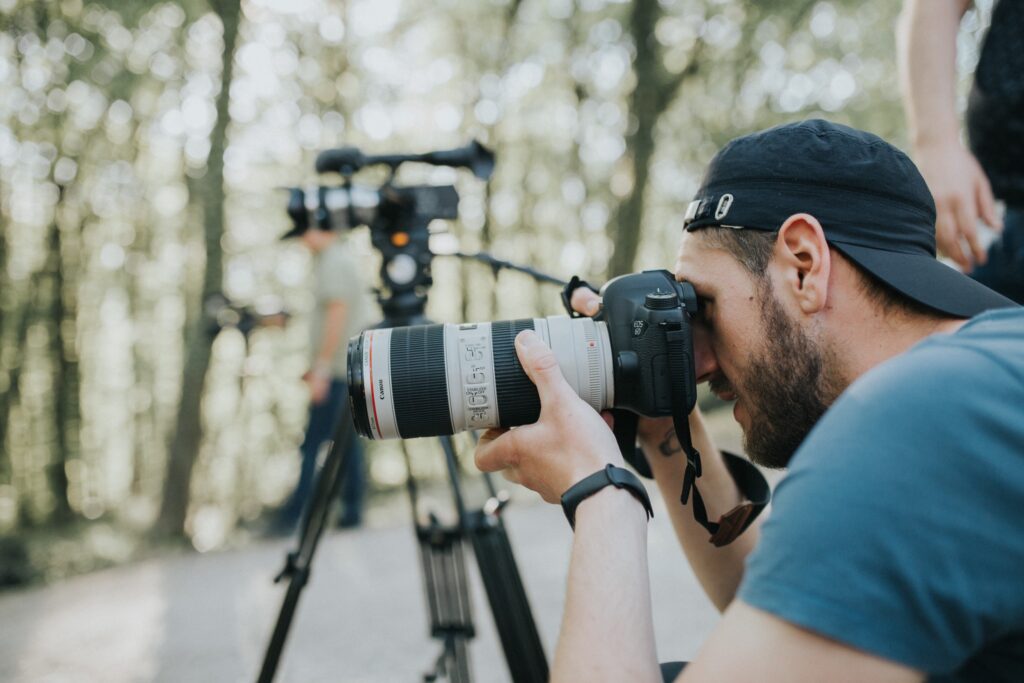 Ever since I was young, I wanted to become a photographer, so at one point in time, I decided to test the waters and purchased a DSLR. However, after briefly becoming obsessed over professional photography, I figured it wasn’t for me and I soon discovered that you can’t just wake up from bed one day and become successful overnight. However, I learned a great deal about what it takes to become successful and I am going to share that with you.
Ever since I was young, I wanted to become a photographer, so at one point in time, I decided to test the waters and purchased a DSLR. However, after briefly becoming obsessed over professional photography, I figured it wasn’t for me and I soon discovered that you can’t just wake up from bed one day and become successful overnight. However, I learned a great deal about what it takes to become successful and I am going to share that with you.
Becoming a full-time photographer can be an exciting step in becoming and independent professional. On the other hand, if photography is something you rather do part-time, it could be a good source of income. Keep in mind that many photography lovers start out – setting in mind to become a professional – and countless have failed in this line of work.
Failure could result from several factors, one being the lack of clients, getting sued by a very dissatisfied customer. Above all, failure is realized when the photographer realizes that he or she is simply not making enough money to be considered as a living wage. Nonetheless, if you do end up becoming a professional photographer, there are a couple of myths you need to get out of your head.

Myth 1: Going to work at your own schedule
In photography you work around your client’s schedule, instead the other way around. You’ll have be prepared to work on the weekends and evenings, and if you are really succeed, be prepared to put in more hours than usual. You’ll most likely have to give up family time as you’ll be expected to work around the client’s schedule. Therefore, if you value your family time, photography may not be the right line of work for you. However, if you don’t mind taking photographs of children and babies, you’ll have slightly better hours to work with.
Myth 2: Charging $75.00 dollars an hour
Even though you could get away by charging $75.00 dollars an hour, when you add your overhead expenses, you can expect to make something around $25.00 an hour. Given that you have to pay for photography printing, the cost of getting from point A to B and the time it takes to setup your photography set is usually not included. It’s the actual photography session that clients expect to pay that amount. However, if you are continuously shooting for 8 or 9 hours straight, you could earn a decent living wage.
Myth 3: Receiving Compliments about your work
Your family, friend and co-workers are most likely the first ones to offer you compliments on your work. That’s because you are probably the best photographer they know, and plus family and friends are always there to support one another. However, don’t expect the same encouragement or praise from clients; they’ll be comparing your work with photos in magazines. In a nutshell, many clients can have unrealistic expectations.
Myth 4: Trusting customers with digital photographs before payment
It will be extremely common for customer to see samples of their photographs, especially if you are charging by the photograph. Often time inexperienced photographers make the mistake sending out a CD/DVD of the photographers containing the photographs, and as it turns out many customers will copy those photographs and save them on their PCs, later refusing to pay for your photography services. Although you can’t refuse customers samples of their photographs, you can however copy protect all photographs and share with them without worrying about anyone stealing your work. Plus, customer will more likely be paying for the actual photographs.
Disadvantages Of Being A Photographer
1. Low pay: Most photographers don’t make a lot of money.
2. Unpredictable income: Photographers often have to wait for months or even years to get paid for their work.
3. Unstable work: As a photographer, you may experience long periods of unemployment or periods of low income.
4. Long hours: Photographers often have to work long hours to get the perfect shot.
5. Equipment costs: Professional photographers
Hardest Part Of Being A Photographer
The hardest part of being a photographer is the creative process. Photographers need to be able to capture moments and create images that tell stories. This requires a great deal of creativity and skill, as well as a keen eye for composition and lighting.
How Do Photographers Not Be Awkward?
The best way for photographers to avoid feeling awkward is to be respectful and professional. They should treat their subjects with respect and be mindful of their subject’s comfort level. Photographers should also be open to feedback and willing to collaborate with their subjects to create the best possible photos. Finally, they should be prepared and organized to ensure that their shoots go as smoothly as possible.
Main Problems In Photography
The main problems in photography are lighting and composition. Lighting is important because it can affect the look and feel of a photo. Composition is important because it can determine how the elements in a photo are arranged and how they interact with each other. Both of these problems can be addressed by understanding the fundamentals of photography and experimenting with different techniques.
Can A Shy Person Be A Photographer?
Yes, a shy person can be a photographer. Although it may be more difficult for a shy person to approach strangers or ask for permission to take photos, there are plenty of ways to capture great images without having to interact with people. For example, a shy photographer can take advantage of nature photography, landscape photography, or even macro photography, which all require minimal interaction with people.
Can You Take Pictures In The Public?
Yes, you can take pictures in public, as long as you are not violating any laws or infringing on someone’s privacy. Generally, you can take pictures of people, buildings, and other objects in public, as long as you are not on private property or infringing on someone’s privacy. However, it is always best to check with local laws and regulations before taking photographs in public.
Summary:
First of all, it’s not easy becoming a professional photographer. Early on there the challenge of winning over clients, then there is issue with working hours. Finally, there will be times when you simply won’t be able to turn over a profit. Therefore, if you are looking into photography as a means to make a quick buck; it’s probably not for you.
